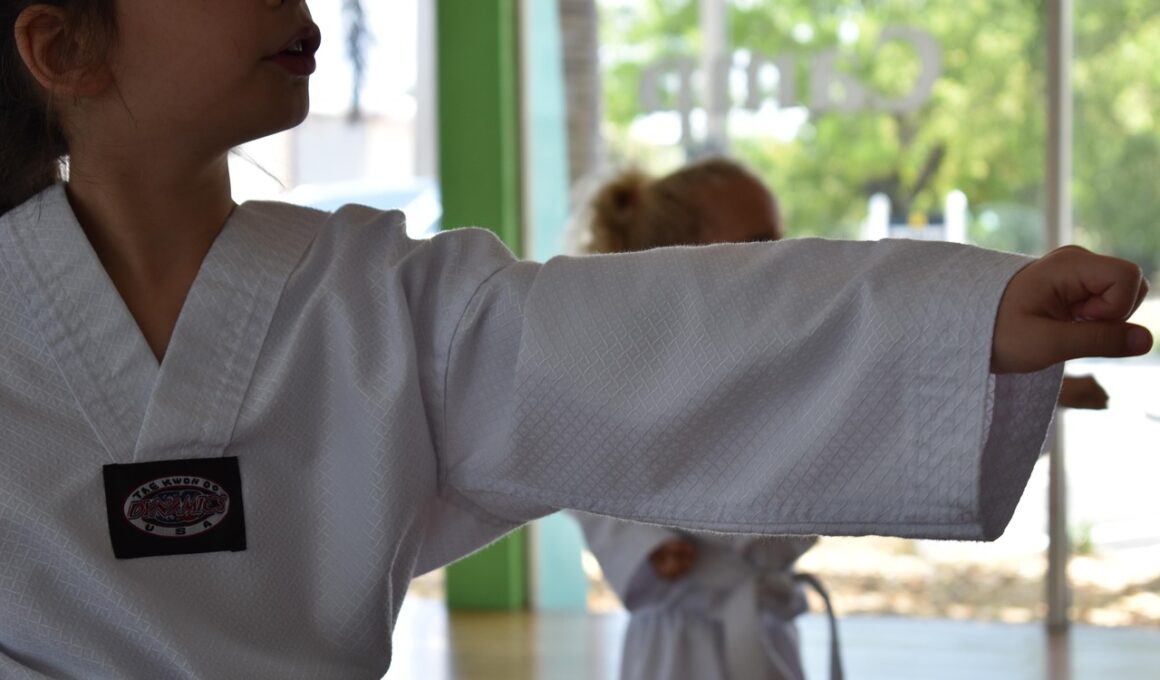How to Handle Post-Competition Blues
Competing in fitness competitions can be an exhilarating experience filled with personal achievements and victories. However, many athletes face post-competition blues after the excitement fades. This emotional slump can manifest in feelings of sadness, confusion, or even loss of motivation. Understanding that these feelings are common, and recognizing that you’re not alone in experiencing them, is crucial. Often, athletes feel a sense of emptiness after the intense preparation and excitement that competitions bring. One effective way to cope is to embrace self-care. Take time to rest and recover both physically and mentally to avoid burnout. Additionally, try to engage in activities that bring you joy outside the fitness realm. Friends, family, and hobbies can help you redirect your focus. By reevaluating your fitness goals and setting new objectives, you can spark renewed enthusiasm. Remember, it’s entirely normal to feel a bit lost after competition. Making a plan for your next steps will provide a sense of direction and purpose post-competition. And, if you’re feeling overwhelmed, seeking support from fellow competitors or even professionals may provide helpful insights and encouragement during this transitional period.
Another strategy to combat post-competition blues involves staying connected with your community. Engaging with fellow athletes after the event can foster a supportive network and be incredibly beneficial. Consider joining a local fitness group, either virtually or in person, where you can share experiences, receive guidance, and celebrate collective achievements. This connection can make you feel less isolated in your post-competition journey. Social media can also play a role in maintaining these connections, as sharing post-competition reflections and experiences can encourage camaraderie. Additionally, creating a journal to document your thoughts, feelings, and goals allows for reflection on your growth and progress. Regularly revisiting your competitive experience and reminding yourself of the hard work invested can maintain a sense of accomplishment. Another important aspect is to focus on nutrition and recovery. Having a well-structured post-competition meal plan aids physical recovery and keeps you energized. Hydration, balanced meals, and proper sleep patterns will also assist both your body and mind in transitioning from competition mode. Ultimately, understanding that these feelings are temporary will empower you to embrace the next chapter of your fitness journey.
Setting New Fitness Goals
Setting new fitness goals following a competition is an excellent method to instill motivation and provide a sense of direction. The excitement of competition can often shift focus, leading to a motivation drop once it’s over. To minimize this, consider defining short-term and long-term objectives for your fitness path. Short-term goals could be recovering from any competition fatigue, while long-term goals could involve preparing for another competition or achieving different health milestones. Utilize a SMART (Specific, Measurable, Achievable, Relevant, Time-bound) approach to ensure your goals are structured effectively. For instance, if you want to increase your endurance, you might set a goal of gradually running a certain distance over the next few months. Associating your new goals with an accountability partner or coach can also provide encouragement and support, aiding in overcoming feelings of isolation. Furthermore, exploring new fitness avenues, such as classes or sports you haven’t tried before, can add excitement back into your training. This not only reinvigorates your routine but also opens your network to new friends and connections in different fitness communities. Having a clear goal setting strategy will reignite your passion and enthusiasm.
In addition to setting new fitness goals, reflecting on your previous competition experience can offer valuable insights for your journey ahead. Taking time to analyze what went right and what might need improvement will enhance your future performance. Discussing your experience with coaches or seasoned athletes can provide a fresh perspective and open avenues for growth. This reflection process may also involve evaluating your training regimen, nutrition, and mental preparation leading up to the competition. Understanding the aspects that contributed to your success, or those that led to challenges, can help you craft a more effective strategy for the next round. Keeping engaged with your fitness journal during this phase aids in chronicling these reflections, ensuring you don’t forget critical lessons learned. Moreover, re-evaluating your support systems is essential. Surrounding yourself with the right people who inspire and uplift you will foster a positive environment for personal growth. This supportive atmosphere is vital for pushing through difficult emotional states and nurturing resilience. Every competitor’s journey is unique, learning from one’s experiences only strengthens future readiness.
Prioritizing Mental Health
Paying attention to mental health is essential during and after competitive experiences. The pressure and stakes involved in competitions can heighten anxiety levels, which may persist post-event. This can lead to feelings of insecurity or inadequacy if those feelings are not addressed actively. Engaging in mindfulness techniques, such as meditation or yoga, proves beneficial for managing these emotions effectively. Mental health should be prioritized just like physical health; both influence each other greatly. Allocating some time to daily mindfulness practice can enhance self-awareness and help mitigate negative emotions. Furthermore, consider speaking with a professional psychologist or counselor, especially one who specializes in sports psychology. They can offer valuable skills and strategies designed to cope with stress and improve your competitive mindset. Additionally, surrounding yourself with supportive friends and family who respect your feelings can positively influence your recovery process. Connecting with fellow competitors who experience similar feelings can create a safe space for sharing and encouragement. Remember that prioritizing your mental health will not only support your post-competition transition but also enhance your overall well-being in the long run.
Creating a balanced routine can significantly ease the transition from competition back to regular training. Sports often demand an intense level of dedication; however, sustaining burnout can compromise both mental and physical health. Incorporate non-competitive activities into your regimen. Opt for recreational activities or classes that differ from competition training to keep things fresh and enjoyable. This could involve activities such as hiking, swimming, or dance classes, which maintain your fitness level while promoting joy and relaxation. Additionally, including rest days is vital—allowing recovery time is critical to physical health and mental clarity. Gradually transitioning back into regular workouts can maintain motivation and focus during this phase. Playful workouts may help maintain a sense of enjoyment and satisfaction that may have waned during competitive training. Try setting aside a few days post-competition to engage in light, enjoyable activities with friends, making the whole process feel more social and less stressful. Exploring these options fosters a smoother adaptation back into normal routines, ensuring that exercise remains a fulfilling part of your life rather than a chore. Keeping fitness fun is essential for long-term success and happiness.
Conclusion and Looking Ahead
In conclusion, handling post-competition blues involves adopting various strategies overall. The journey isn’t just about the competition itself, but also about personal growth and learning. By connecting with your community, reflecting on past experiences, setting new fitness goals, and prioritizing mental health, you can successfully navigate this transitional phase. It is critical to allow yourself a period of adjustment; the emotional rollercoaster is normal and, with the right tools, manageable. Using the strategies discussed, you can create a well-rounded approach that ensures fitness remains a positive aspect of your life while also preparing adequately for future challenges. The key lies in recognizing that every experience offers lessons that guide you toward improvement and joy in your fitness journey. Embracing these changes will not only help you bounce back from post-competition blues, but also keep you engaged and passionate about your fitness goals moving forward. Remember that your journey is unique, and it is crucial to honor your own timeline and feelings as you progress. Cheers to your continued success and fulfillment in your fitness endeavors!
Lastly, it’s vital to celebrate your achievements, no matter how small they may seem. Every effort contributes to your progress, and by recognizing this, you’re fostering a mindset geared toward self-compassion. Create a list of all your accomplishments during your competitive journey; this can serve as a delightful reminder of what you’ve achieved. Engage in social activities that celebrate your competition results, like sharing your story on social media or at a gathering with friends. Connecting with others who appreciate your efforts enhances joy and strengthens bonds. Furthermore, consider planning a mini celebration or reward for yourself after a significant milestone is achieved, such as a new training cycle or returning to a fitness class after a break. Savoring success will bolster your motivation and keep you engaged with your fitness journey. Know that every phase is part of your development not just as an athlete but as an individual. Having a supportive community around you also amplifies motivation and positivity. With every new endeavor, keeping this celebratory spirit alive ensures your fitness journey remains vibrant and meaningful.


